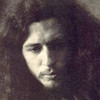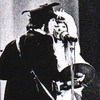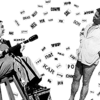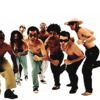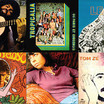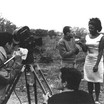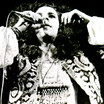Ilumencarnados seres
Três trópicos da tropicália
black music
I was stirred by Hendrix’s modernity: his spoken-voice style of singing, half-hidden behind the instrumental; his guitar style, half blues, half Stockhausen, his outsider image – it all made him a symbol Of his times, and suggested that with Hendrix all fundamental themes could be radicalized. But there was too much confusion in his sound for my taste, too many cymbals, too much “jazz.” I couldn’t bring myself to like It as much as I liked the Beatles. l was more attractedto James Brown and his scream that tore in a clean rip over the lean swing of his band. Jimi Hendrix, in comparison, seemed important and serious but naïve. James Brown’s music was sheer entertainment, and aside from being simply more appealing, It was also representative of an American tradition of precision that interested me greatly. The styles created by blacks in that milieu that so venerates exactness were absolutely marvelous: there was in James Brown a charm that I find in Stevie Wonder, Prince and Michael Jackson.
Mais:
- » become a tropicalist
- » concretes
- » glauber rocha’s new cinema
- » goals of the movement
- » modernisms of 22
- » nara’s lindonéia
- » origins
- » talking to zé celso
- » the creative energies
- » the mpb on tv
- » the name
- » the night of “alegria, alegria”
- » baby
- » black music
- » caymmi
- » janis
- » joão gilberto
- » música popular nos anos 60
- » oswald no oficina
- » stones, beatles e dylan
- » terra em transe






